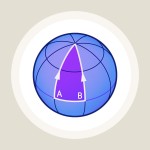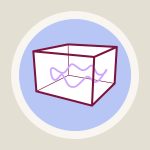Dictionary
Doppler effect
Effect named after the Austrian scientist Christian Doppler concerning the emission of waves by moving sources. Consider a wave-source (for instance, a device that sends out sound-waves or light-waves). Also consider two observers A and B, with observer A moving relative to the source, while observer B is at rest relative to it. When a source that moves relative to an observer emits a wave, the frequency measured by this observer is different from what a measuring instrument would record that is at rest relative to the source: If source and observer approach each other, the observer measures a higher frequency, if they move away from each other, a lower frequency.
In everyday life, the Doppler effect is readily apparent when we listen to sound waves from moving sources. If a police car or fire truck with blaring horns first races towards us, then passes us and races away, the characteristic horn sounds change dramatically in pitch, the moment the car passes us. This is because, at first, the car is moving towards us, and there is a Doppler shift towards higher pitch compared with a listener in the car. From the moment the car passes us, it becomes a source that moves away from us, with all sounds being shifted to lower pitch.
In the context of relativity, the most important Doppler effect is that for light waves. In this context, a shift towards higher frequencies is called blueshift, one to lower frequencies redshift.










